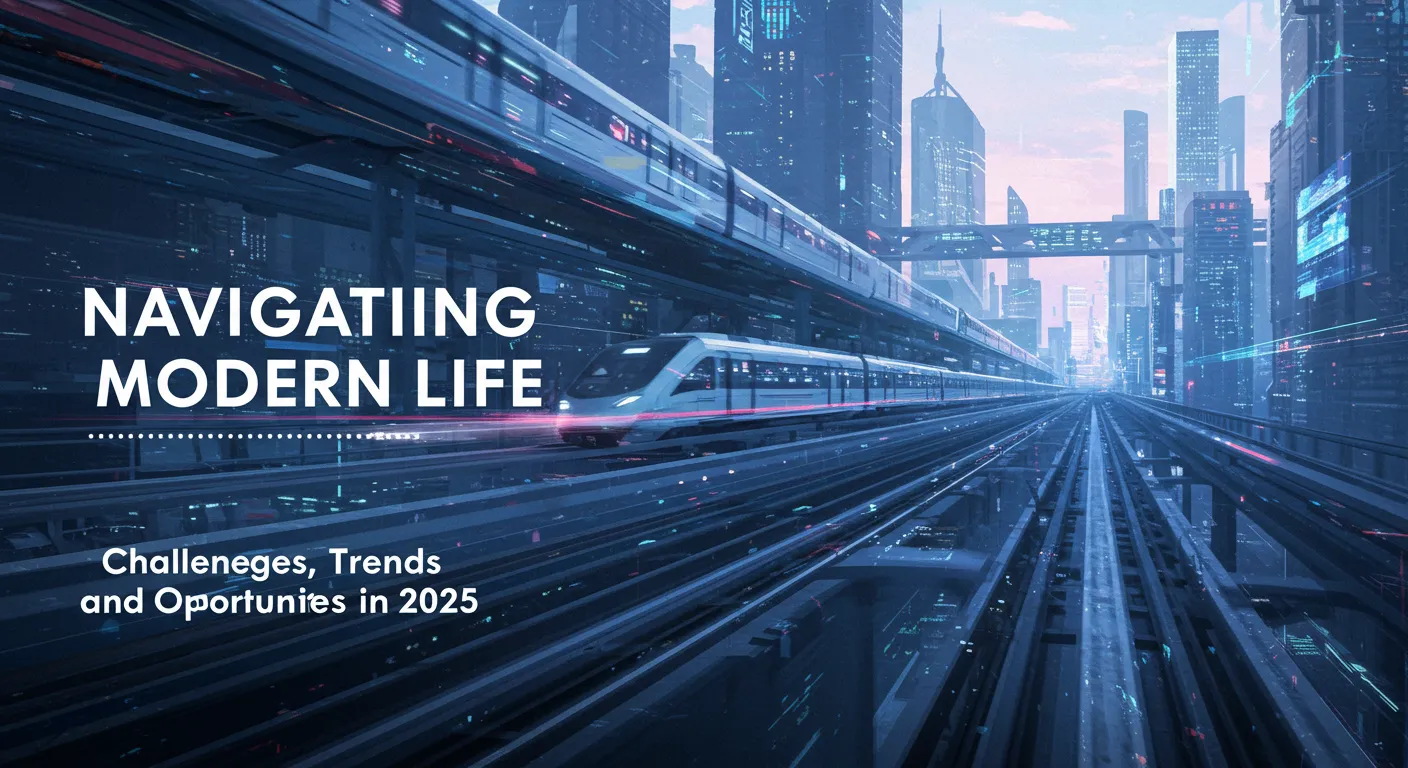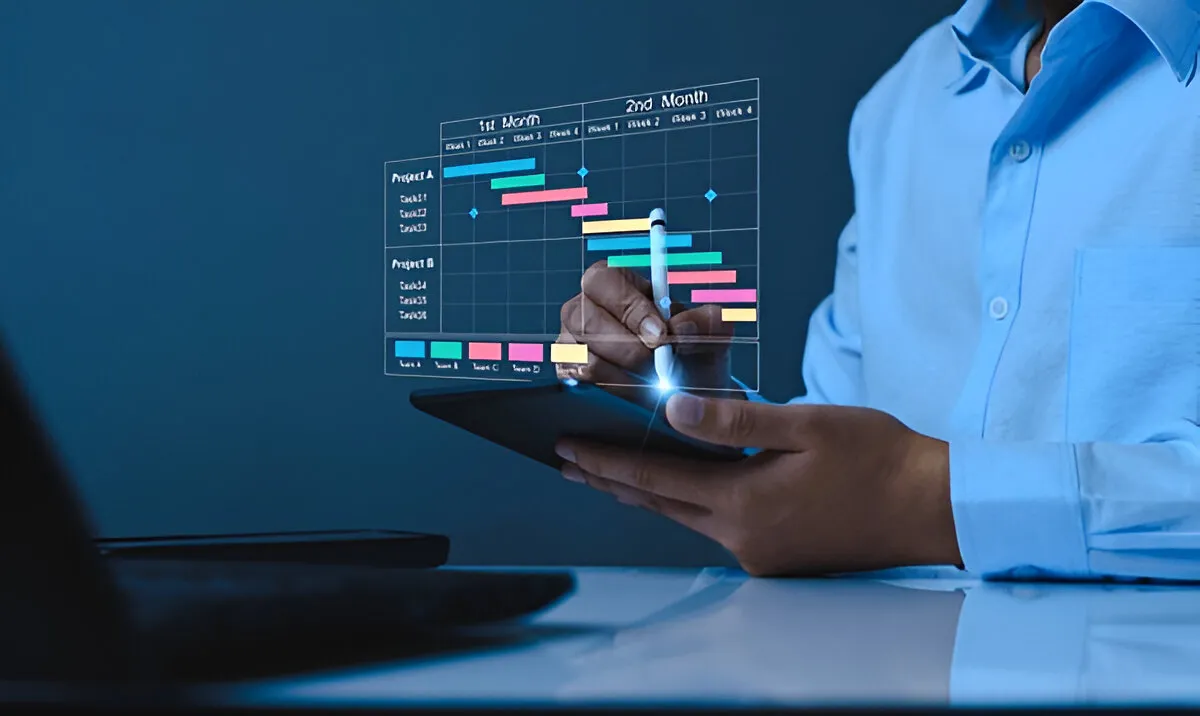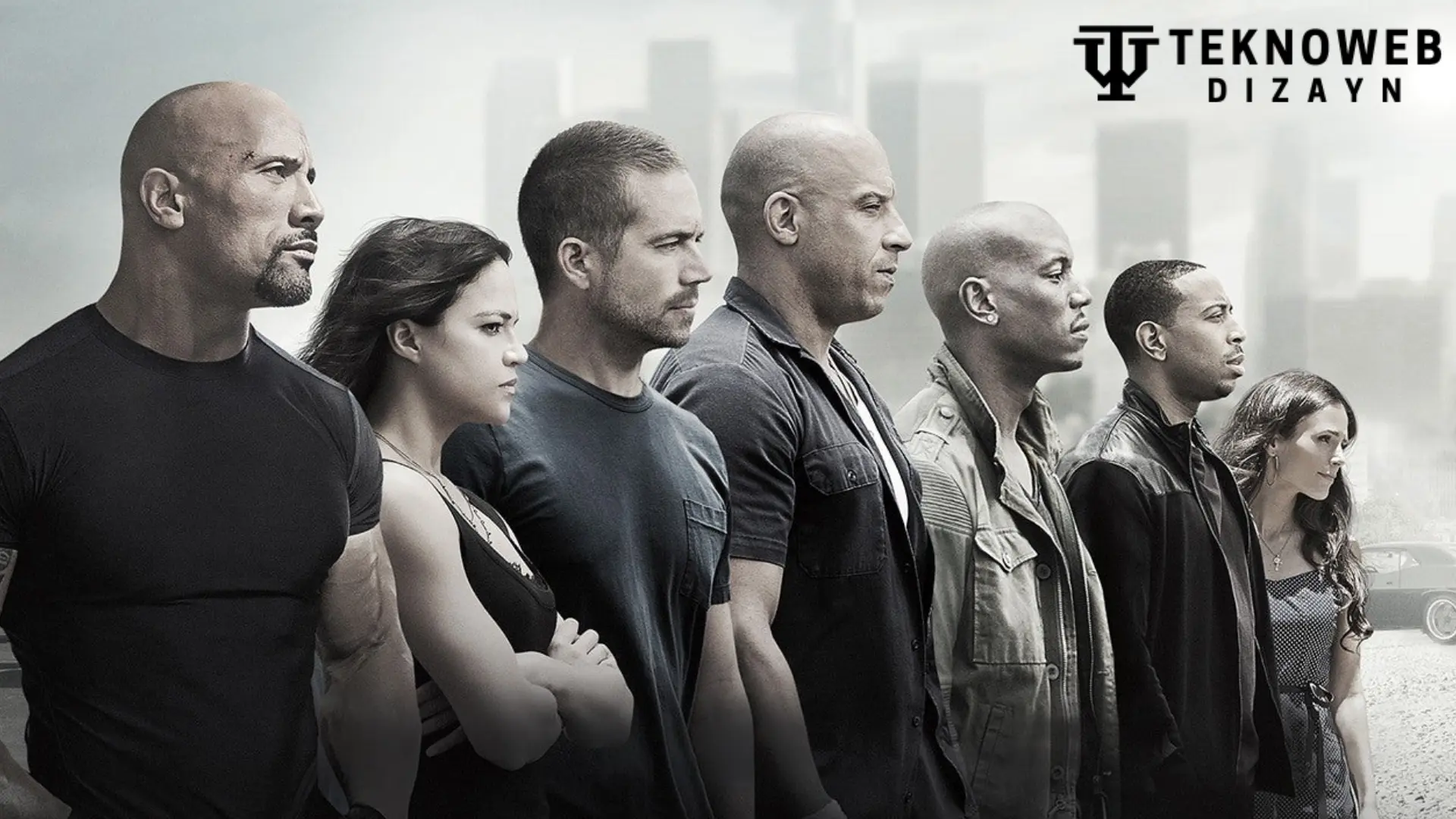Table of Contents
Modern life in 2025 is a complex tapestry woven with rapid technological advancements, shifting social dynamics, and evolving lifestyle preferences. As we navigate this era, the interplay between technology, human behavior, and societal changes shapes how we live, work, and connect.
Understanding these nuances is crucial to thriving amid the pace and pressures of contemporary existence. This article explores the multifaceted nature of modern life, highlighting key trends, challenges, and opportunities that define our current era.
The Landscape of Modern Life
Modern life is characterized by unprecedented connectivity and technological integration. To understand how technology shapes Modern Life in 2025, consider innovations such as 5G networks, artificial intelligence (AI), increased reality (AR), and the Internet of Items (IoT).
These advancements have transformed daily routines, work environments, and social interactions. They enable faster communication, personalized experiences, and smarter living but also introduce new complexities like digital fatigue and privacy concerns.
Technological Integration and Its Impact
The expansion of 5G technology has revolutionized data transmission, supporting a new wave of innovations from autonomous vehicles to immersive virtual reality experiences.
AI-driven tools enhance productivity and customer engagement, while wearable health monitors promote preventive healthcare by continuously tracking vital signs.
However, this rapid digitalization also challenges individuals to maintain balance and authenticity in their lives, as excessive screen time and digital distractions can rust mental well-being.
Social and Cultural Shifts
Modern life is not only about technology but also about evolving social attitudes and cultural dynamics. The rise of the “Forever Young Adult” trend reflects how many young people delay traditional milestones like homeownership and marriage, opting instead for extended youthfulness and nostalgia-driven lifestyles. This shift influences consumer behavior and demands from brands, which must adapt to connect authentically with this demographic.
At the same time, there is a growing emphasis on mental health, mindfulness, and well-being. People increasingly seek meaningful, sensory-rich real-world experiences as a counterbalance to digital overload—a phenomenon described as “social rewilding”.
This trend encourages spending time in nature, engaging in adventurous activities, and prioritizing relaxation and personal growth.
Also Read: $8 Million Yacht Capsizes Near Annapolis: A Wake-Up Call for Maritime Safety
Challenges of Modern Life
While modern life offers remarkable conveniences and opportunities, it also presents significant challenges:
- Digital Trust and Security: The proliferation of AI-driven scams and misinformation undermines trust in online content, necessitating greater transparency and authenticity from organizations.
- Workplace Transformation: Automation and AI adoption reshape jobs and workplace morale. Leaders must foster empathy and respect to maintain workforce engagement amid these changes.
- Mental Health Concerns: The fast pace and constant connectivity contribute to stress and burnout. Movements like “therapeutic laziness” promote intentional rest and self-care as vital responses to modern pressures.
- Cultural Preservation: Globalization and technology influence traditional practices, especially among youth, raising questions about preserving cultural heritage while embracing modernity.
Opportunities and Adaptations
Despite these challenges, modern life offers numerous opportunities for growth and innovation:
- Personalized Experiences: Consumers increasingly demand niche products and personalized services that reflect their identities and preferences, from customized wellness devices to fan culture merchandise.
- Technological Empowerment: Advances in biotechnology, autonomous vehicles, and extended reality (XR) open new frontiers in health, transportation, and education, enhancing the quality of life and learning outcomes.
- Sustainable and Mindful Living: Eco-conscious technologies like bike-mounted camping stoves and portable relaxation devices illustrate the integration of sustainability and well-being in lifestyle choices.
- Community and Connection: Despite digital distractions, there is a renewed focus on deep human connections and meaningful offline experiences, reinforcing the value of presence and shared moments.
Closing Words
Modern life in 2025 is a dynamic blend of innovation, cultural evolution, and human aspiration. While technology accelerates change and offers unprecedented possibilities, it also demands mindful adaptation to preserve mental health, trust, and authentic relationships.
By embracing emerging trends such as personalized experiences, sustainable living, and social rewilding, individuals and organizations can navigate the complexities of modern life effectively. Ultimately, success in this era hinges on balancing technological progress with human-centric values to foster a fulfilling and resilient existence.





